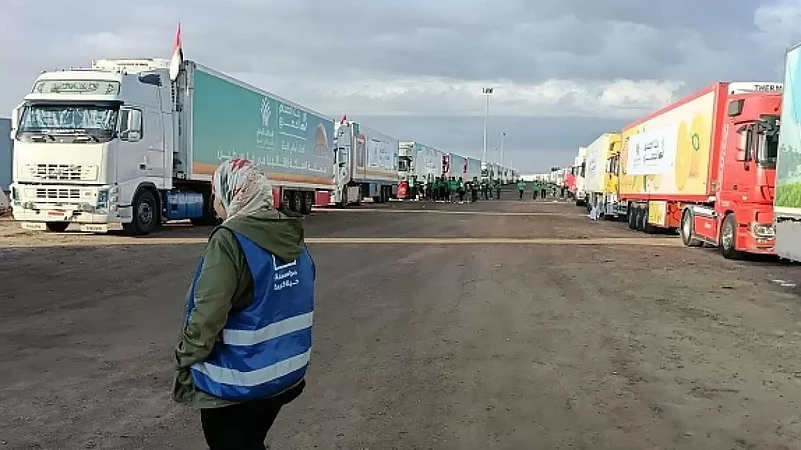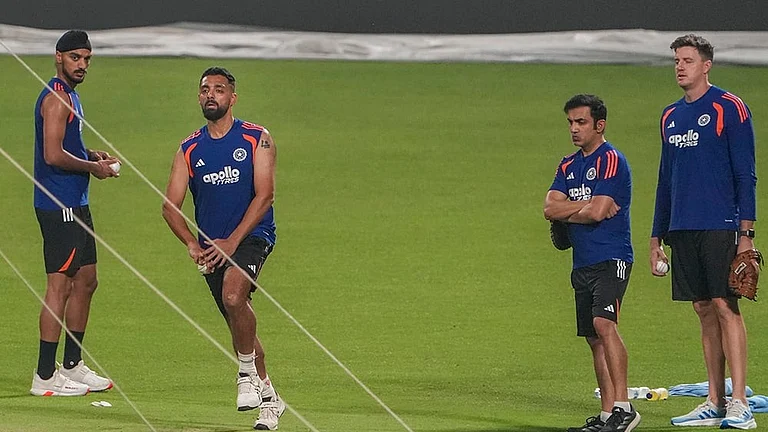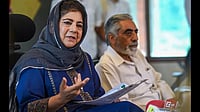US President Joe Biden on Wednesday said Egypt's President has agreed to open a border crossing into Gaza to allow in 20 trucks with humanitarian aid. The border, also known as the Rafah Crossing, was the only crossing point left for humanitarian aid to reach Gaza after Israel sealed off two other border crossings amid the ongoing war.
The Gaza Strip was cut off from access to food, water, medicine, and fuel for its 2.3 million people following the Hamas attack on October 7. Israel controls most of the crossings into Gaza and has said that it will not allow deliveries from its territory.
What is the Rafah Crossing?
There are two border crossings to enter into Gaza – Erez, a crossing for people with Israel in northern Gaza, and Kerem Shalom, a solely commercial goods junction with Israel in southern Gaza. Both the crossings were shut after Hamas attacked Israel on October 7.
The Rafah Crossing between Egypt and Gaza Strip is the only route left for humanitarian aid to reach Gaza directly from outside Israel and the only exit that doesn’t lead into Israeli territory. Both Israel and Egypt control the Crossing and have been enforcing restrictions since 2007 when Hamas came to power.
What is the role of Rafah Crossing in the current conflict?
Currently, Gaza is reeling with dwindling resources amid a constant barrage of Israeli airstrikes on civilians. An Israeli airstrike hit the Al-Ahli Baptist hospital, lying in the centre of the besieged Gaza Strip, killing at least 500 Palestinians on Tuesday – further worsening access to medical resources to treat the wounded.
At this crucial juncture, when Gaza is desperate for food, water and other urgent resources, the Rafah Crossing remains the sole entry point and the only exit point for Gaza residents to flee from amid a looming threat of Israel’s ground offensive. Israel has been giving warnings by dropping flyers onto the residents, urging them to evacuate and move closer towards Rafah to seek shelter. However, residents have been scrambling to find a place for shelter.
While Egypt claims its side of the Crossing is operational, it says the Palestinian side was damaged during Israeli airstrikes on the region. According to a report by Al Jazeera, hundreds of tonnes of aid from NGOs and several countries were waiting on trucks in the nearby Egyptian town of El Arish on Monday for permission to enter Gaza through the Rafah Crossing.
On 12 October, the Egyptian government also urged Israel to halt strikes near the Rafah border Crossing so that it could serve as a "support lifeline" for people in Gaza, and made it clear that it would not open the passage until there were guarantees for the safety of its staff. Egypt is also concerned about a potential influx of refugees from Gaza, as it already hosts migrants from Sudan, Yemen, Syria and others.
Has there been any agreement to open the Crossing?
Following hours of talks with Israeli Prime Minister Benjamin Netanyahu, US President Joe Biden announced on Thursday that Israel had agreed to allow the opening of the Egypt-Gaza Rafah crossing to deliveries of desperately needed food, water and medical supplies on the condition that the humanitarian assistance was not diverted by Hamas for its own use.
The decision came amid rage across the Middle East over the Israeli airstrike that hit the Al-Ahli Baptist hospital. While Israel and Palestine traded blame on each other for the attack, innocent civilians have been at the receiving end of this brutal conflict.
Prime Minister Benjamin Netanyahu's office said the decision was approved in light of a request from visiting US President Joe Biden. In a statement, it said it “will not thwart” deliveries of food, water and medicine, as long as the supplies do not reach Hamas. The statement made no mention of badly needed fuel. The aid will start moving Friday at the earliest, White House officials said.






















